The US-China relations and the role of economic sanctions
The strife between the United States and China for global dominance – whether that be on the Innovation & Technology or Financial sector – reflects also on the imposition of sanctions among the two countries.
From the US standpoint, the trigger lies in the claims of fundamental human right violations against ethnic and religious minorities living in China. On July 2020, the Trump administration issued sanctions on 11 Chinese companies – restricting them from selling to the United States. The affected Chinese companies that hold close financial ties with high-profile US companies are charged with allegations over exploiting Muslim minorities in the Xinjiang region. According to a New York Times article, this measure is expected to have a severe impact on the Chinese supply chains.
New vs old US sanctions imposed on China
However, this is not the first time that the US has imposed sanctions on the Chinese economy. In 2019, the US Government reacted again to minority abuse claims in Xinjiang by imposing sanction on 28 Chinese companies. Due to the ethnicity diverse population living in Xinjian, including a two-million Turkish minority, multiple turbulences have been observed over the years in the Xinjian region.
What makes the latest set of sanctions worse than the previous ones for the Chinese companies are the restriction to sell products to the US market, especially the chip manufacturing companies such as Huawei. The recent announcement of the US Commerce Department to restrict any chip sales manufactured by Huawei – due to national security concerns – without a license has pushed the company to its limits. Similarly to the United States, the United Kingdom has also banned Huawei from supplying its 5G network. As a result, Huawei’s employees face the fear of layoffs, as the Chinese firm witnesses its year on year growth to have dropped by 13% in the first half of 2020 (McMorrow and Liu, 2020).
Despite January efforts to defuse the tension between Washington and Beijing – by signing a bilateral trade war truce- China started spreading rumours that the US army was responsible for the Coronavirus outbreak. Equally, the US president put the blame openly to China for spreading the coronavirus to the rest of the world – by referring to the virus as “China virus” (BBC, 2020). As expected, this has pushed the US-Chinese relations to its lowest level since the 1970s.
Beyond the outbreak of the virus crisis, Chinese officials started to adopt a more careful position towards the US, as a way to avoid exacerbating the already strained relations. Following this line, Beijing has kept a low-key reaction to the recent US sanctions; by announcing sanctions against 11 low-rank US politicians – among them the Senators Marco Rubio and Ted Cruz. According to the Chinese officials, the reason behind these sanctions a means to express Beijing’s disapproval against US politicians who “have publicly criticised China for its increasingly aggressive tactics in Hong Kong” (BBC, 2020). In doing so, Beijing has avoided another open conflict with the US. Imagine if the target range would include high-rank officials from Trump’s inner circle; this would have definitely sparked a direct US reaction to its Chinese counterparts.
An ephemeral situation or an emerging cold-war regime?
To answer this question, it is important to look at the tactics used by both parties. Despite the spikes in the US-China relation over the last two years, one can observe that this “war” is nothing more than a proclaim of power between Washington and Beijing. This proclaims of power possibly constitutes a show-off of which market is the most powerful; whether that be financially or technologically.
By imposing sanctions to China, the US President Donald Trump decided to “punish” the high-tech Chinese companies over unethical or national security allegations. A tactic, which by the way, coincides with the continuous technological and economic growth in China, the second-largest economy worldwide, with a 10% average GDPR growth per year according to the World Bank data. Despite the US is still the world’s largest economy in nominal GDP, domestic problems still linger ‘’with regards to its trading partner and Trump’s trade wars, rising debt levels and its industrial output, among other issues” (Bajpai, 2020).
In the meantime, Donald Trump is fighting for the presidential role over the next elections, after seeing his popularity rate plummeting during the COVID-19 period. By tightening the economic restrictions towards China and putting the blame of the coronavirus spread on China, Trump aims to bring together the nation while winning votes for the elections in the view of an external threat – in this case, it is China.
There is no question that Trump’s sanctions on China have had a heavy toll on the US economy as well. Importing firms in the US have absorbed the tariffs and passed them down to the end-user (Bajpai, 2020). This means that the average US citizen will pay for Trump’s foreign policy choices.
Of course, China as an emerging economy is still under substantial social and economic reform. Over the last decade, the Chinese leadership is trying to modernise its infrastructure by engaging actively in international commitments including the climate change mitigation and the fight for social equality. Today, China is an active member of the international fora that strive for a sustainable low carbon future; by signing the Kyoto Protocol in 1998; participating in the Paris Agreement in 2016 (United Nations Climate Change, 2020)
Early this year, China has also made a positive step towards the protection of human rights by joining the UN Human Rights Council (UNHRC) panel on human rights investigations and monitoring. Some sceptics have expressed their opposition over China’s inclusion to the panel, as this could potentially oppress or compromise the purpose of the UNHRC mission. However, this might be also a great opportunity for the West to sit on the negotiating table with its Chinese delegators and mould a more ethical and human-rights based approach for the future.
Conclusions
It seems that the declared “economic war” between China and the United States is nothing more than a competition for global economic dominance. At this point at least, there are no true intentions from both sides to escalate the existing tension on a political or military level.
Each country is scourged by its own domestic problems and despite the spikes witnessed from both sides at the beginning of this year, neither Trump is ready to scale up the restrictions in a political level, nor China seems too eager to aggravate its already tensioned relations with Washington.
Photo: AK Rockefeller. Polluters (2012). Source: (flickr.com)| (CC BY-SA 2.0)
Bibliography
Bajpai P. (2020) The 5 Largest Economies in the World And Their Growth in 2020, Nasdaq, 22nd of January, Available at: https://www.nasdaq.com/articles/the-5-largest-economies-in-the-world-and-their-growth-in-2020-2020-01-22 (Accessed 22/08/2020)
BBC (2020) China imposes sanctions on US senator over Hong Kong, BBC News, 10th of August, Available at: https://www.bbc.co.uk/news/world-asia-china-53722811 (Accessed 21/08/2020)
Disis J. and Wang P. (2020) US sanctions 11 Chinese companies over human rights abuses in Xinjiang, CNN Business, 21stof July, Available at: https://edition.cnn.com/2020/07/21/business/us-sanctions-china-companies-xinjiang-intl-hnk/index.html(Accessed 21/08/2020)
McMorrow R. and Liu Q. (2020) Huawei employees worry about lay-offs after tougher US sanctions, Financial Times, 20th of August, Available at: https://www.ft.com/content/1fccedf5-bf88-45fe-9a39-2ac378571693 (Accessed 21/08/2020)
Pham S. (2020) New sanctions deal ‘lethal blow’ to Huawei. China decries US bullying, CCN Business, 18th of August, Available at: https://edition.cnn.com/2020/08/17/tech/huawei-us-sanctions-hnk-intl/index.html (Accessed 21/08/2020)
Shepperd C. and Liu Xinning (2020) China treads cautiously in the face of US sanctions, Financial Times, 12thof August, Available at: https://www.ft.com/content/4084b0fb-6dc0-4090-a778-3e15694cfa1d (Accessed 21/08/2020)
Swanson A. (2020) U.S. Imposes Sanctions on 11 Chinese Companies Over Human Rights, The New York Times, 20th of July, Available at: https://www.nytimes.com/2020/07/20/business/economy/china-sanctions-uighurs-labor.html (21/08/2020)
United Nations Climate Change (2020) UNFCCC Processes: China, Available at: https://unfccc.int/node/180417 (Accessed 22/08/2020)
UN Watch (2020) China joins U.N. human rights panel, will help pick experts on free speech, health, arbitrary detention, 3rd of April, Available at: https://unwatch.org/chinaunhrc/ (Accessed 22/08/2020)
Usher P. B. (2020) Why US-China relations are at their lowest point in decades, BBC News, 24th of July, Available at: https://www.bbc.co.uk/news/world-us-canada-53517439 (Accessed 22/08/2020)
World Bank (2020) China: Overview, Available at: https://www.worldbank.org/en/country/china/overview#1 (Accessed 22/08/2020)

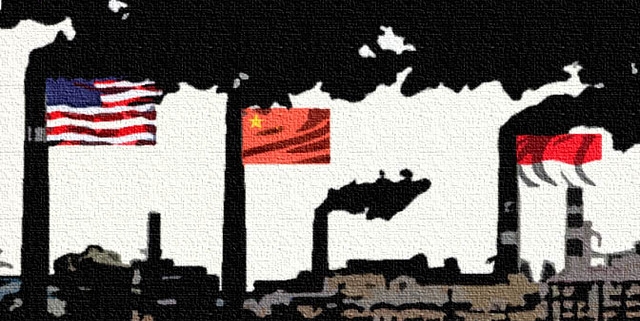
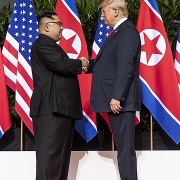
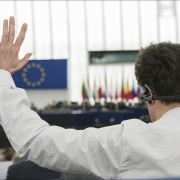
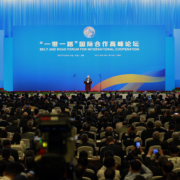
 176th Wing Alaska Air National Guard's photostream
176th Wing Alaska Air National Guard's photostream 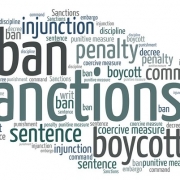
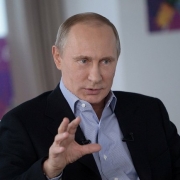



Leave a Reply
Want to join the discussion?Feel free to contribute!